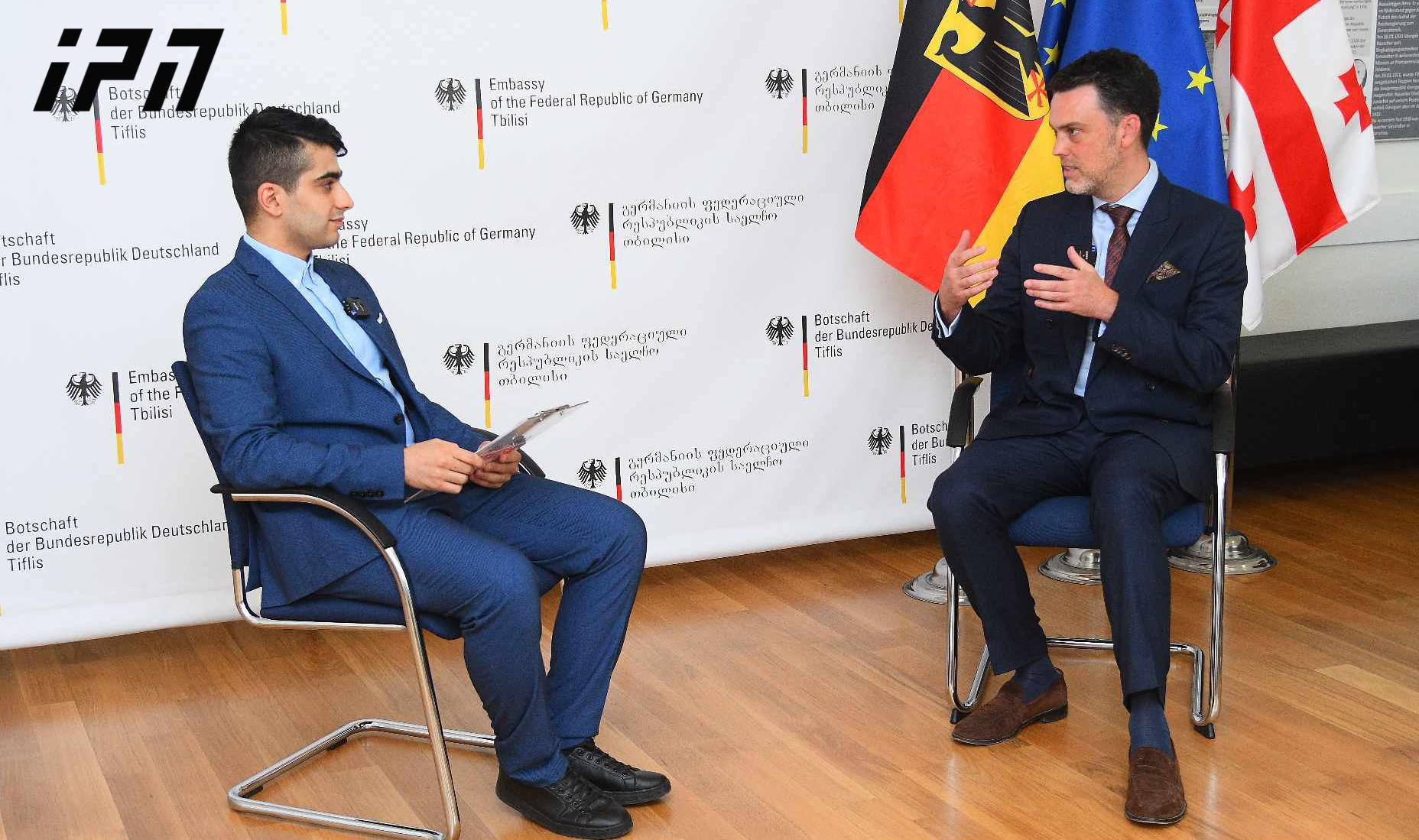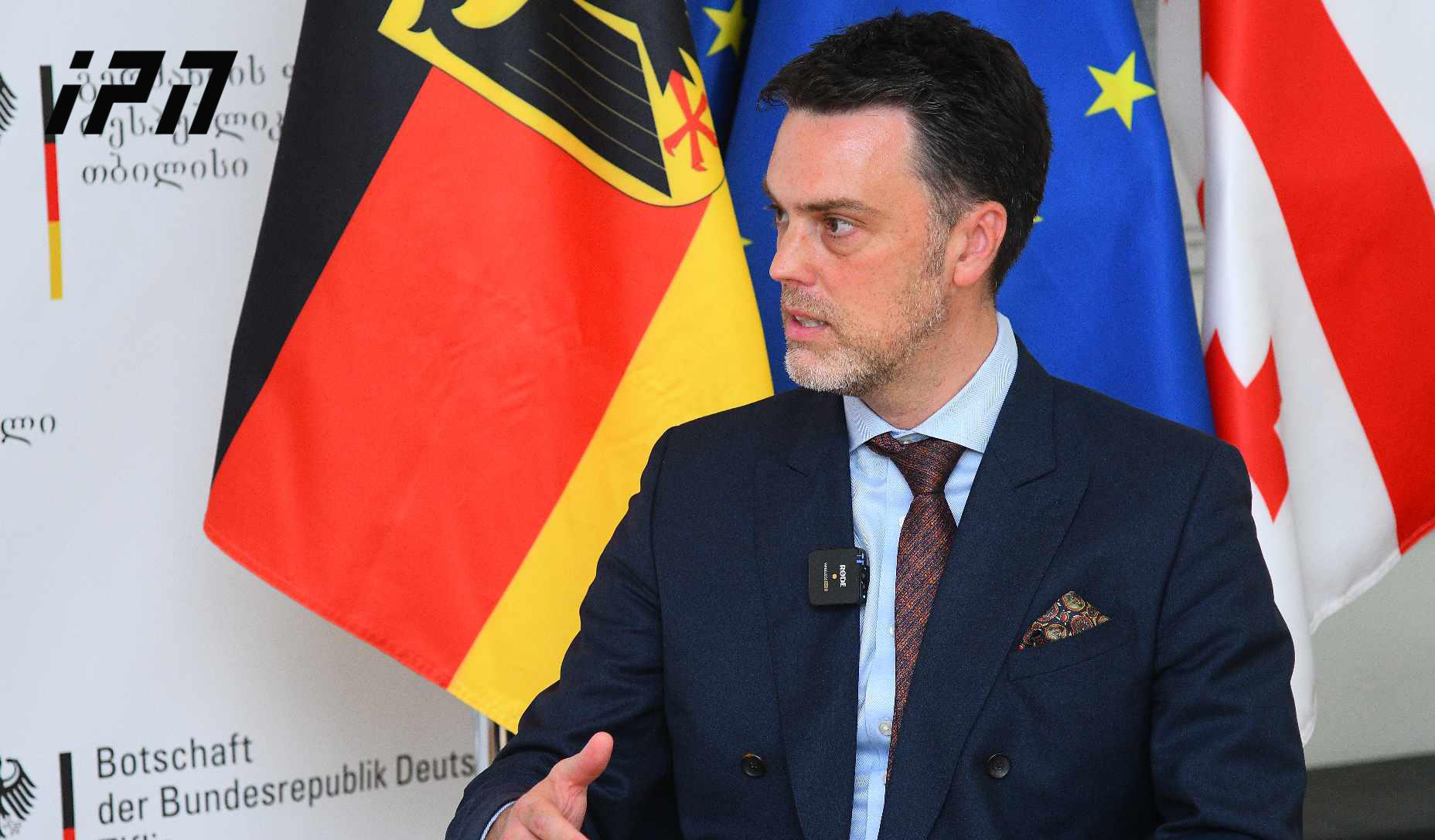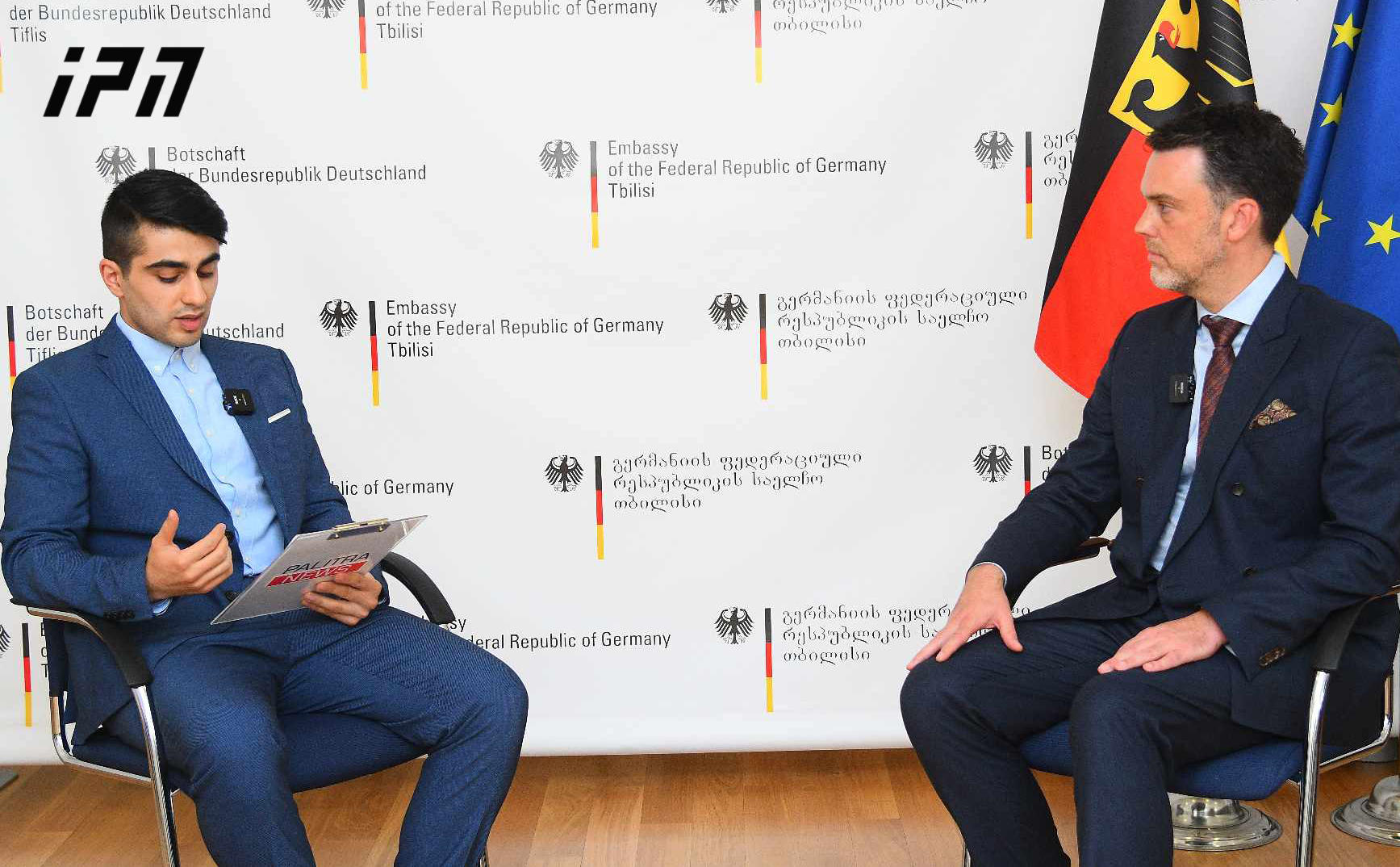
The Coordinator for Intersocietal Cooperation with the Southern Caucasus, the Republic of Moldova and Central Asia, Robin Wagener, believes that the law on "transparency of foreign influence" is the main obstacle to Georgia's European integration. As he states, the joint position of the capitals of the European Union is clear - in this way Georgia will not join the European Union.
Robin Wagener also notes that it is completely incomprehensible to him, "why the Georgian authorities deviated from the Western course and stopped the European integration of the country by adopting the law".
What is the relationship between Tbilisi and EU capitals now, when and what kind of regulations and measures can be imposed by official Berlin and Brussels, and will the repeal of the law be enough to improve relations between Georgia and the EU? - Robin Wagener, the Coordinator for Intersocietal Cooperation with the Southern Caucasus, the Republic of Moldova and Central Asia, spoke about these and other topics in an exclusive interview with "Interpressnews".
Recently, you have participated in the conference “EU Enlargement: A geopolitical necessity and the next steps for the EU Candidate States” in Tbilisi. Additionally, you had meetings with the representatives of the Georgian government and non-governmental organizations. How would you evaluate these meetings? What were the main topics and messages of your discussions?
The most important question that was discussed and that is the biggest obstacle for Georgia for going further European Union is the question of the so-called transparency law at the moment. But it is also not only this law, but it is in a framework of the anti LGBTIQ legislation that is in the process. And additionally, the very polarized rhetoric at the moment that is the very aggressive situation we have here. There were big concerns by civil society organizations and I made very clear yesterday in the conference, but also in the meeting with the deputy foreign minister today that there will be no further EU accession with this law and this legislation and this path, which is a decision by the Georgian government against further European Union accession, that this will not happen. And this has been made very clear by European Council, by the German Chancellor. And I'm here to provide this message as well.

The law on "transparency of foreign influence" is still a topic of discussion in the country. Despite the fact that the leaders of the EU member states called the ruling party many times to withdraw the law, the Parliament of Georgia still overcame the veto of the president on the law. Because of this, the relations between the European Union and Georgia have deteriorated in many ways. How would you evaluate the current relationship between Tbilisi and the capitals of EU member states?
I would even add that last year there was nearly the same law in the discussion with a changed name. And there were very clear messages from the European capitals last year. And there was a promise from the Georgian government that this will not be brought up again. Then there was the decision, and I was personally advertising for this decision, having the open arms of European Union and granting the candidacy status, which was made in the expectation that certain reforms will be taken. These reforms include depolarizing the country as well as having better cooperation with civil society and with opposition.
And now despite the promises of last year, we see the same law again. And this is a big disappointment. Personally, as I was really in favour of the candidacy status. This is a big disappointment and this is a clear obstacle. And this is the assessment in the European capitals there will be no further European Union accession for Georgia with this path. And I think this has to be very clear in the country. It is a decision that has to be made in Georgia. But our position as the European Union and as, European states is so clear. No further path towards European Union with this law, with this course.
We often hear from the leaders and representative of the Western countries that Georgia's EU membership may "freeze" in this current situation. On 10th of July the German ambassador to Georgia, Peter Fischer has made a very clear statement: “As you know, based on the actions of the Georgian government, the European Council, decided on June 27 to suspend the accession process with Georgia. The accession process of Georgia has been halted. As for Germany, we are also reviewing our relations with Georgia. The German armed forces canceled their participation in the Noble Partner exercises. To sum up, the process of joining the European Union is suspended”. On 9th of July there was the statement of the EU Ambassador to Georgia as well, Paweł Herczyński with journalists. He said: "At the moment, the money that we planned to transfer to the Ministry of Defense of Georgia, which amounts to 30 million euros, has been frozen. This is only the first step, there will be other steps. Our direct support to the Government of Georgia will be limited and we will try to direct the direct support of the Government of Georgia to civil society and the media”. There are more discussions about suspending visa liberalization or certain financial support. As a representative of the German Bundestag, can you tell us when and what type of regulations and measures can be imposed by official Berlin and Brussels towards Georgia?
What has to be done at the moment? First of all, it's a very clear position, no further accession. This has come to an all and it has not come by chance to enhold, but by a decision of Georgian government to do that. European Union still is interested in further accession and so do Georgian people. We see that and it's very impressive seeing so many people demonstrating against the law and wanting to go further on this path. But also it's very clear that we will have to review not only European Union programs with Georgia but also the German-Georgian bilateral cooperation in many fields.
One has been mentioned, this is the military field, but there are also many others, development agencies, economic cooperation. We will have to review this process. I think it's important to be very clear that our reactions do not target the general population of Georgia who want to be part of Europe Union. We want to have a liberal democracy and continue this path that we review all programs and clearly find out which ones can be proceeded and which ones can't. And this is what is happening at the moment. But this will have very clear consequences. No further programs, but also for programs which have been decided upon in the past.

You have just mentioned that you don't want to target the population of Georgia. But if the visa liberalization is suspended thousands of Georgians will be limited to travel to European Union countries visa free. Do you think this will be a fair decision from the European Union countries to limit the citizens of Georgia with visa free travel to the EU countries?
I do not think we should limit the visa free travel at the moment and this is not the German position to limit it. We do want Georgian people to be able to come to European Union. They are interested in having Georgia part of the European Union and we think they should have the possibility to experience the European Union- come there and see what it's like. It's also part of having real information exchanged between our countries. So, this is not targeted, but it's a review of programs, especially those who are directed, directly supporting or directly financing government structures. It may also include the programs where people might get benefits may be affected by the review of the process. There will be consequences that can be seen and felt by general population as well.
Is the law on "transparency of foreign influence" the main obstacle to Georgia's European integration? Will the repeal of the mentioned law be enough to improve the relations between Georgia and the European Union and allow the country to continue its EU path?
I would say this law does not stand alone as we have a package of obstacles concerning the European path at the moment. And I would not only say they are obstacles, it's a clear decision that has been made here in Georgia to go the other way, as there's the European Union opened its door with the candidacy status and then the Georgian government decided to turn around and walk in the other direction. It is, of course, the most prominent being this transparency, but others being also the pending LGBTIQ plus legislation targeted against this minority groups. But it's also the rhetoric. And for me, it's totally not understandable if you have a constitution of a country saying that the country wants to be member of European Union and NATO, and just some months before you wanted to get the candidacy status and you got it. And then you bring in a law, and the reasoning for the law that you provide publicly is that it's against the influence of the United States and European Union. This I do nothing understand at all. And this does not fit to a path towards European Union. And in the end, it's up to the Georgian citizens. That is what happens in the democracy. It's up to the Georgian citizens to decide upon the cause of the country.
There are elections planned in Georgia this autumn. What would be your advice to the government and the opposition parties of Georgia? What should be done in order for the elections to take place in a democratic and healthy environment?
It's very clear that there have to be fair, competitive elections in Georgia. This is our expectation that this happens. This is what the people of Georgia deserve, and I think it's important. And also, there is the invitation of the country to have election observation mission on that, to ensure that there is a free election in the country and this will happen. And we will also support election observation mission. And then this election is one part of the decision of the country towards the path. I can only give the political message to government as well as opposition parties and to the people of Georgia that with this legislation and this cause, at the moment, there will be no further European accession. And this has to be very clear. No chance for that. And this is a decision that has to be made. Every party that competes in this election, government or an opposition party, can reflect on that and think of its own cause.
On July 1, Hungary took over the presidency of the Council of the European Union. After his visit to Kyiv, Viktor Orbán went to Russia, and in the backdrop of the EU leader’s refusal to communicate directly with Moscow, the Hungarian Prime Minister held official meetings with Vladimir Putin in the Kremlin. How would you evaluate the visit and what problems can the Hungarian presidency create for the EU?
It has to be very clear that Orbán did not represent EU. Personally, he is a European citizen, but he did not represent European Union capacity. There was no mandate for this visit to Moscow. The European Union's position is very clear. The German position is very clear. This was in a capacity solely focused on the Hungarian perspective. So, he did not represent the union at all in this visit. And actually, in the end, it was of no use. And this was what could have been seen before. The answer made by the Kremlin to this visit was clearly seen one day later in this terrible terrorist attacks on a children's hospital in Kiev, killing many people in Ukraine. This is the answer that is given by the Kremlin to appeasement politics, further aggression. So, there is no point in these visits. So, this is not European Union’s official position.
Beka Beriashvili
v-if="article.gallery" v-html="article.gallery"
(adsbygoogle = window.adsbygoogle || []).push({});